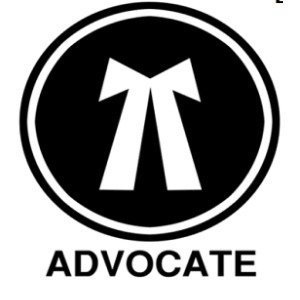Best Accounting & Auditing Lawyers in Ramallah
Share your needs with us, get contacted by law firms.
Free. Takes 2 min.
List of the best lawyers in Ramallah, Palestine
About Accounting & Auditing Law in Ramallah, Palestine
Accounting and auditing in Ramallah, Palestine, are regulated by a series of local laws and international best practices. These laws cover the creation, analysis, validation, and communication of the economic information of companies. They are adhered to by both public and private sector entities and are overseen by the Palestinian Ministry of Finance and Planning. Compliance is enforced by law and companies are often audited to ensure adherence.
Why You May Need a Lawyer
Given the complexity and specifics of accounting and auditing laws and the penalties associated with non-compliance, it is often prudent to seek legal assistance. Common situations where you may need a lawyer include: if you're facing an audit, if there are accusations of financial misconduct, if you're preparing complex financial documentation such as mergers and acquisitions, and if you are dealing with international accounting standards that require expertise to navigate successfully.
Local Laws Overview
The key aspect of local laws relating to Accounting & Auditing in Ramallah, Palestine is thorough compliance with the Generally Accepted Accounting Principles (GAAP). According to the Palestinian Companies Law No. 12 of 1964, all companies are required to prepare annual financial statements in line with these principles, and have them audited by a certified auditor. The law also demands transparency and integrity in all accounting and auditing functions, with harsh penalties meted on individuals and companies found to be in violation.
Frequently Asked Questions
What is the governing body for Accounting & Auditing in Palestine?
The Palestinian Ministry of Finance and Planning is responsible for enforcing accounting and auditing legislations, and ensuring the adherence to international best practices.
What are the penalties for non-compliance with auditing and accounting laws?
Penalties for non-compliance can range from financial fines to imprisonment, depending on the severity of the breach.
What are the Accounting Standards Applied in Palestine?
Palestine has adopted International Financial Reporting Standards (IFRS) and all entities are required to prepare financial statements in accordance with this.
What role do independent auditors play in Palestine?
Independent auditors in Palestine have the responsibility to check compliance with the accounting laws and standards, and provide unbiased financial reports.
Can foreign companies do business in Ramallah, Palestine without following the local Accounting & Auditing regulations?
No, foreign companies doing business in Palestine must comply with local accounting and auditing regulations as well as home country standards.
Additional Resources
For more information and resources, you can refer to the Palestinian Ministry of Finance and Planning Website, The Palestinian Association of Certified Public Accountants (PACPA), and the International Federation of Accountants (IFAC) Palestine Chapter.
Next Steps
If you require legal assistance in Accounting & Auditing, consider reaching out to a certified local legal professional who specializes in accounting and auditing laws. They can guide you to understand the local laws better and help you address any accounting and auditing issues you face in compliance with Palestinian law.
Lawzana helps you find the best lawyers and law firms in Ramallah through a curated and pre-screened list of qualified legal professionals. Our platform offers rankings and detailed profiles of attorneys and law firms, allowing you to compare based on practice areas, including Accounting & Auditing, experience, and client feedback.
Each profile includes a description of the firm's areas of practice, client reviews, team members and partners, year of establishment, spoken languages, office locations, contact information, social media presence, and any published articles or resources. Most firms on our platform speak English and are experienced in both local and international legal matters.
Get a quote from top-rated law firms in Ramallah, Palestine — quickly, securely, and without unnecessary hassle.
Disclaimer:
The information provided on this page is for general informational purposes only and does not constitute legal advice. While we strive to ensure the accuracy and relevance of the content, legal information may change over time, and interpretations of the law can vary. You should always consult with a qualified legal professional for advice specific to your situation.
We disclaim all liability for actions taken or not taken based on the content of this page. If you believe any information is incorrect or outdated, please contact us, and we will review and update it where appropriate.












